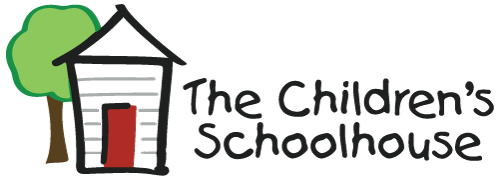The Children’s Schoolhouse is a parent co-operative preschool, founded in 1971 by a small group of Davidson parents. Once housed in the red brick schoolhouse of the Cornelius Elementary School, the co-op purchased its current facility on Caldwell Station Road in 1991. The Children’s Schoolhouse is a non-profit, tax-exempt organization.
Children come to the Schoolhouse primarily from the towns of Davidson, Cornelius, Huntersville, and Mooresville. Any child who will turn three by August 31st and is potty trained is eligible to attend. A wide range of backgrounds and occupations is found among the parents who have chosen the Schoolhouse to provide their children with an outstanding environment, a multi-aged grouping and a child-directed teaching philosophy.
The Schoolhouse maintains a low student-teacher ratio, with two teachers in the classroom each day. Parent volunteers are welcomed in the classroom to assist and observe with the curriculum.
The Schoolhouse was established by a group of parents who wanted to have an active role in their children’s education. Today, parents still co-operate to make the school run successfully. Parents hold a variety of jobs (from President to Fundraising Chair to Parent Volunteer to Building and Grounds Team Member) all of which are essential to the daily operations of the school. Click here for a detailed description of each co-op job.
Because the Schoolhouse is a co-operative school, parents have the opportunity to be important forces in their children’s early education. Parents can work in the school with their children, and they have an active voice in shaping school policy. The co-op provides a strong foundation for close involvement in children’s future school experiences. It also provides a close-knit community of parents and families.
Families typically work 1-2 hours per week on average; some roles are more steady in their time commitments and some are as needed. We are reasonable and flexible, so if this is prohibitive, please let us know.
A typical day is hard to predict but here is a basic outline of the day.
The Schoolhouse generally follows the Charlotte Mecklenburg school calendar including teacher workdays and vacations. The annual calendar will be created and posted on the website prior to the beginning of the school year.
A good school is expensive to maintain. In order to keep tuition fees down, the Schoolhouse must raise additional funds to meet the basic operating expenses of the school: teacher salaries, taxes, insurance, mortgage payments, administrative expenses, maintenance and educational supplies.
One major fundraiser, The Children’s Schoolhouse Annual Carnival, and several minor fundraisers are held throughout the year to support these basic needs, as well as to fund scholarships, capital needs (such as a new roof) and improvements to the facility and grounds.
In order to maintain the Children’s Schoolhouse’s child centered philosophy, and as a measure for current and future teachers and parents, Pathways to Learning, an Early Childhood Resource and Curriculum Guide, serves as the primary curriculum guide for the Children’s Schoolhouse. It is utilized by teachers, board members and parents at the Children’s Schoolhouse as a means of defining, maintaining, supporting and developing activities, processes and teaching strategies that are in keeping with the Children’s Schoolhouse Mission Statement and Statement of Educational Philosophy.
The Board requires teachers to read and actively utilize the ideals set forth in Pathways to Learning. The Board strongly encourages parent volunteers and parent volunteer substitutes to read and utilize this guide as well.
*Historical note: Pathways to Learning was developed by and is currently in use at The Open Door School in Charlotte. Sue Riley, founder of the Open Door School, and one of Charlotte’s foremost authorities on early childhood education, worked with her faculty to create this guide. Copies of the guide can be purchased by contacting the Open Door School.
Articles and books that further explain our philosophy can be found here.
Email any questions to the Admissions Chair at [email protected].
